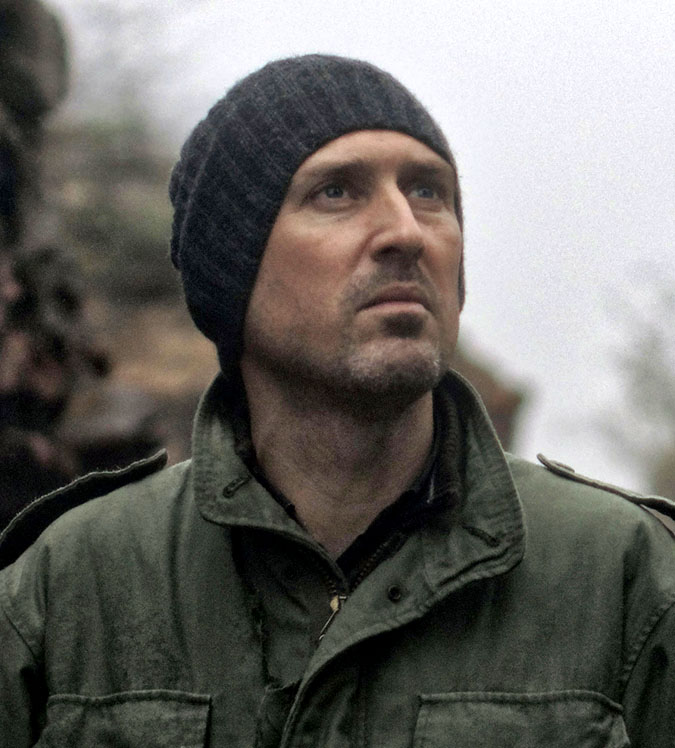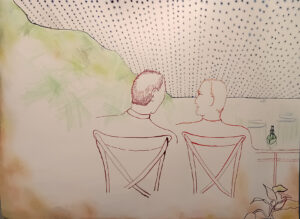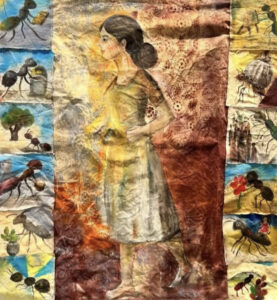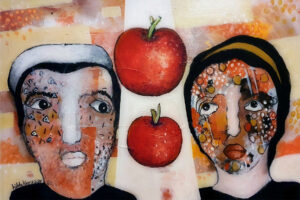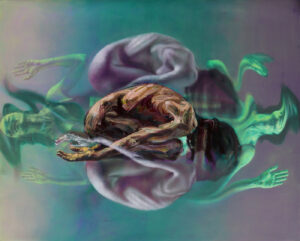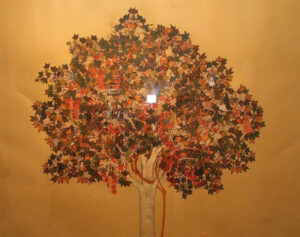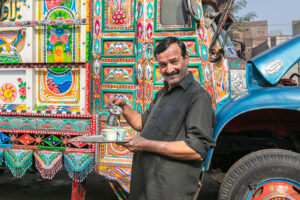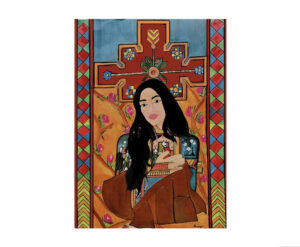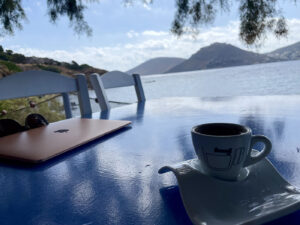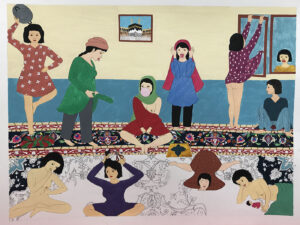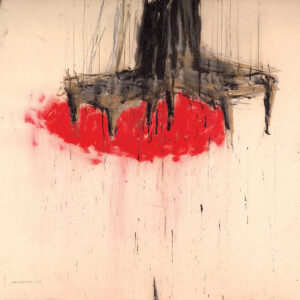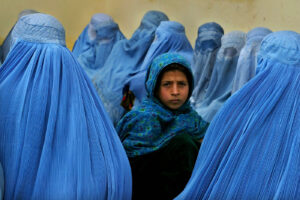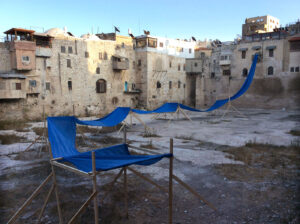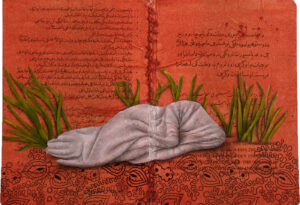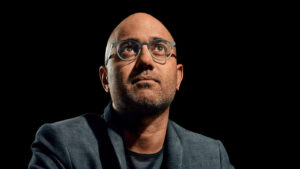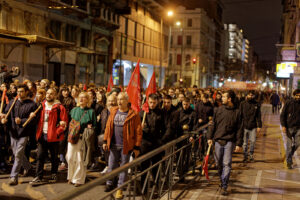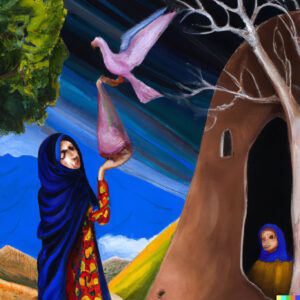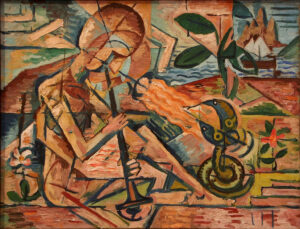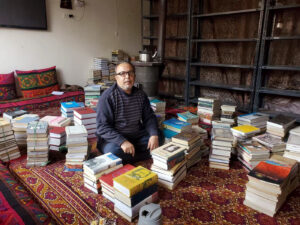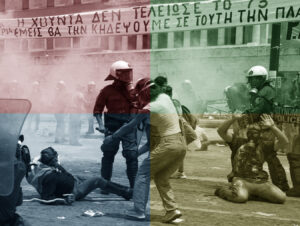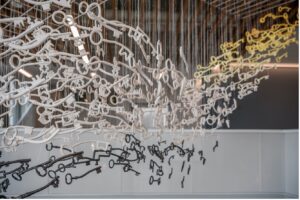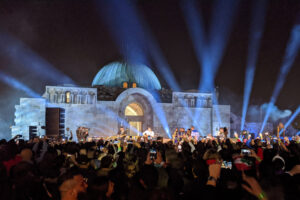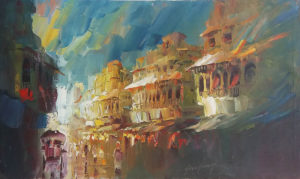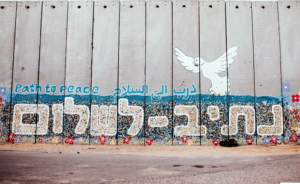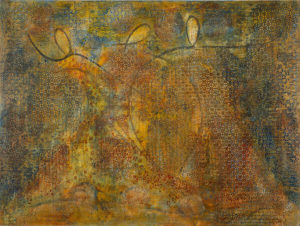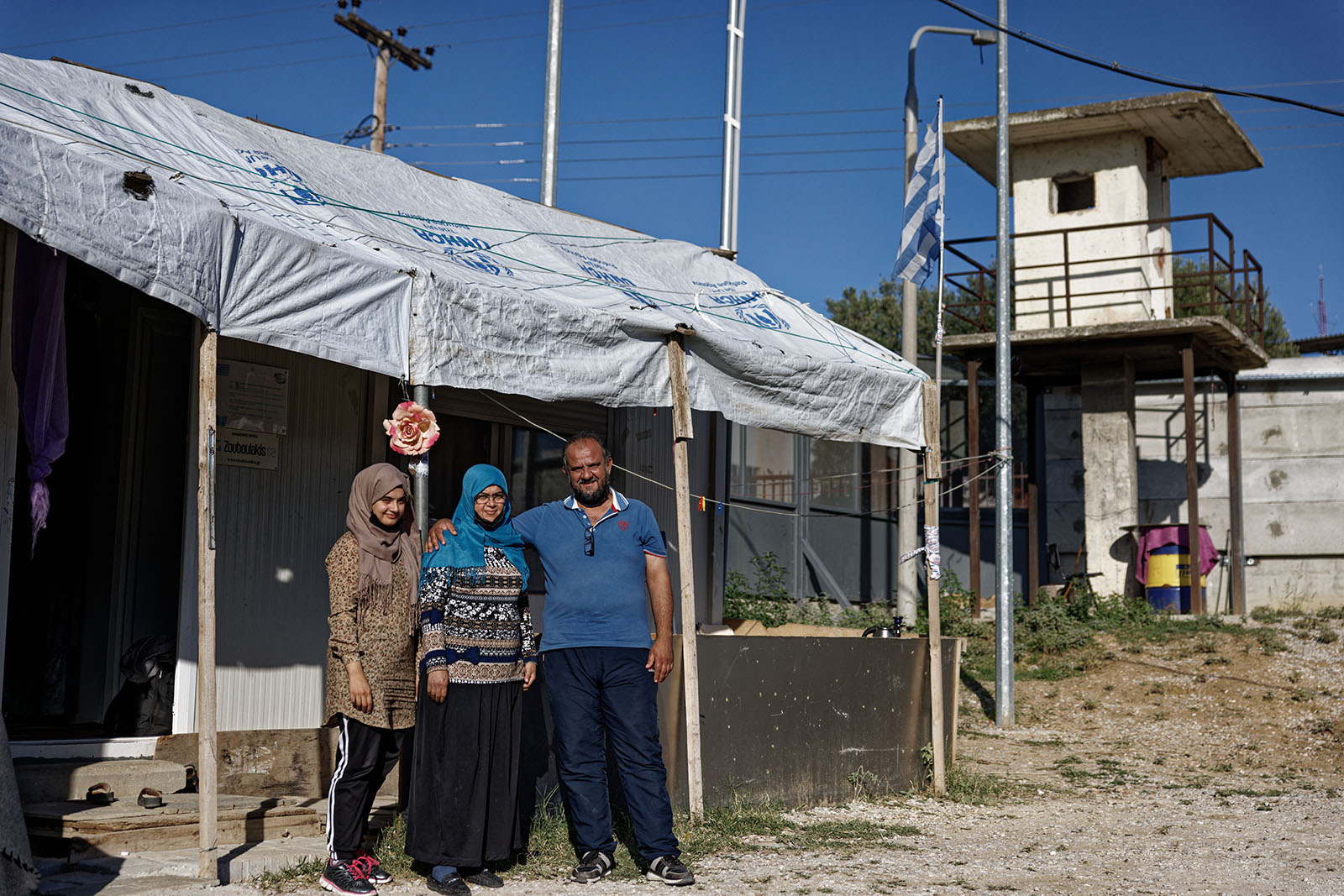
In which our columnist flies up to Thessaloniki and visits the Diavata camp for refugees seeking European asylum — no one is illegal, everyone merits a better life.
Iason Athanasiadis
At the security screening of Athens’ International Airport’s Departures, police have pulled aside a group of migrants seeking to board a flight. The heterogeneous group of anxious, thwarted Arab, Iranian and African men, women and children stand out by a mile, especially when shoulder-to-shoulder with glossily confident white tourists, basking in the afterglow of a relaxing holiday. Even the non-white EU residents populating the queue have a First World sheen profoundly absent from the ragtag group.
Among the migrants is an African woman. Clearly a regular at the airport, she yanks off an unlikely-looking wig while shouting at a policeman “It’s me, it’s me, yes it’s me!” Smiling, the officer offers her his arm in a parody of gallantry, to lead her towards the head-high metal enclosure into which the others have already been corralled.
Unscriptedly, a Ralph Lauren-wearing, flush-faced American and his wife and son complacently follow the migrant crowd straight into the pen. Catching sight of the impending social awkwardness, an Arabic-accented man yells, “No, no, no, no!”, anxious to save these respectable people from veering off into some decidedly non-First World problems. The Americans return to the right queue, order is restored, and Athens returns to its traditional balancing role between East and West, rich and poor, insider and outsider: tourists, digital nomads and Golden Visa investors get to visit the Greece of their dreams, but for migrants and refugees the stay can get nightmarishly overextended.
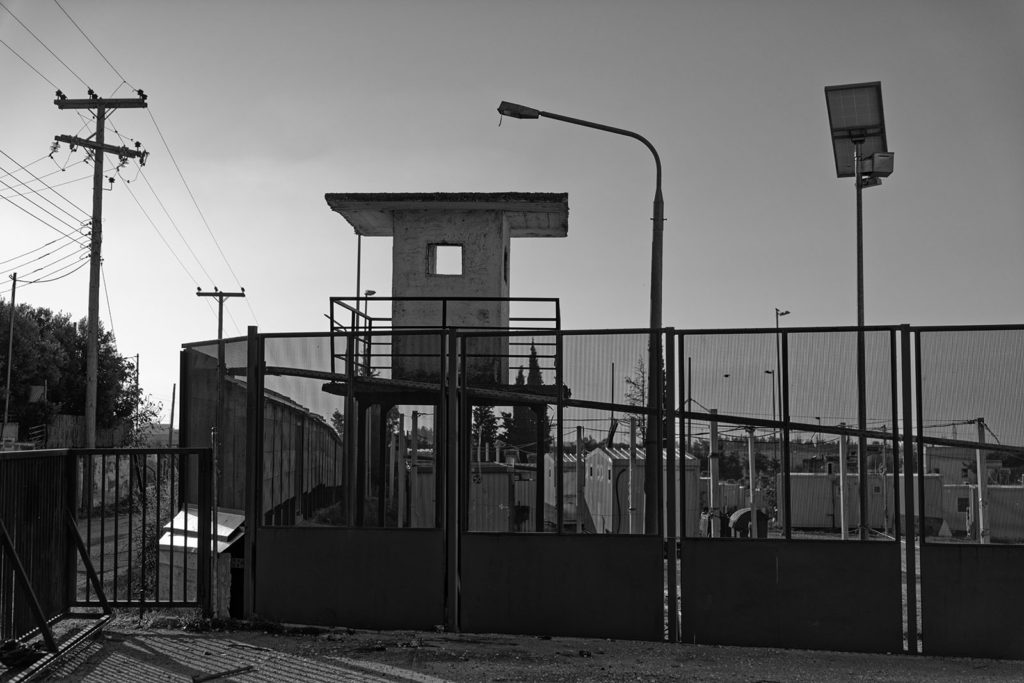
On the road to nowhere
I am headed to the northern port city of Thessaloniki to produce a documentary about the state of migration in Europe and the Middle East, after the Taliban’s summer reconquest of Kabul closed a twenty-year American parenthesis in Afghanistan. The expected migration flows have yet to pick up, but once they do, Thessaloniki — whose once-cosmopolitan port used to be the terminus for all Balkan trade in the first flush of late Ottoman industrialization — will be a transit area, covering that part of the migration route from the Turkish border to the Balkans. With winter closing in and Covid-related restrictions in force, flows of non-VIP refugees have still to manifest, although images from the Afghanistan-Pakistan border show thousands clustered there.
In the first half of the last century, Thessaloniki lost both its commercial hinterland to the Iron Curtain and its vast Jewish community to Nazism, plunging it into an isolating ethnic homogenization from which it is only just emerging. The tens of thousands of Pontian-origin Greeks who flocked to it after the collapse of the Soviet Union, turned it into a nationalist bastion, while a cosmopolitan-minded former mayor and upgrades to infrastructure resulted in growing tourism numbers and real-estate investment, much of it Israeli. The interest from Israel isn’t by chance: Thessaloniki’s onetime Jewish community made it known as the Jerusalem of the Balkans.
Covid, and low rates of vaccination, hit Thessaloniki particularly hard. A new wave is sweeping through during my visit, but celebratory liturgies in honor of the city’s patron saint on the anniversary of Thessaloniki’s conquest by the Greek army in 1912 and a military parade remain uncancelled.
But a few kilometers from the center’s heaving Byzantine churches, frantic nightlife and real-estate investments, lies another world. Diavata is a camp for asylum-seekers housed in a former military base lost amid characterless provincial roads, junkyards and two-storey apartment blocks. Nearby are a major prison, an industrial zone, and a Roma settlement.
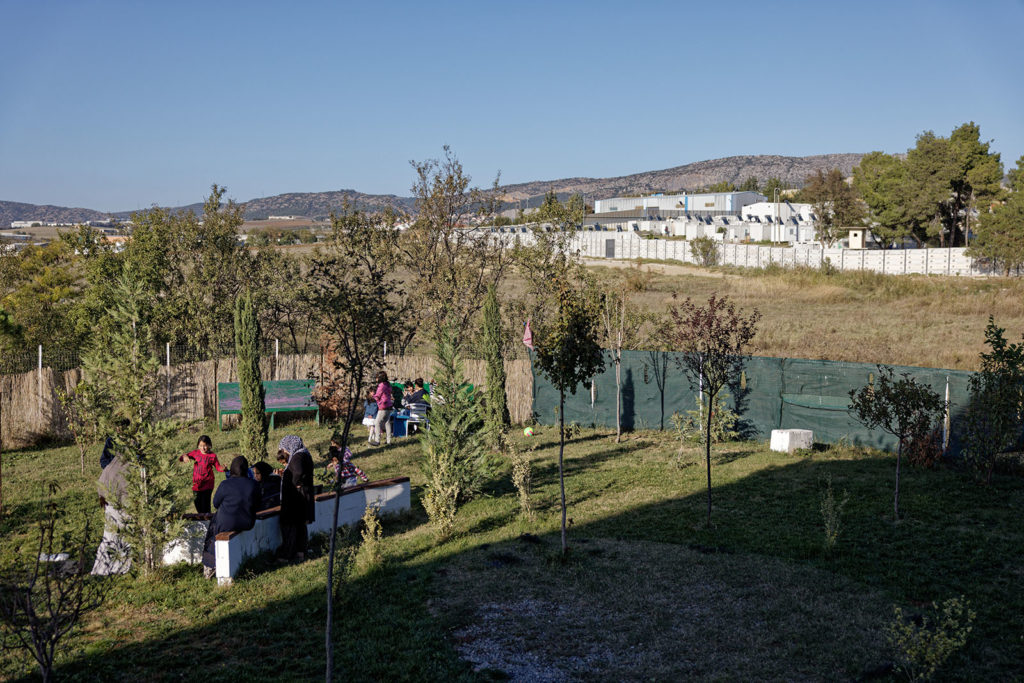
Its population is currently at an all-time low of 700 individuals (from a height of 1,600), following the current government’s acceleration of the asylum process and severing of financial aid, and the right to free food to all those whose process concludes. A turgid futility floats over a formerly chaotic and often violent camp. Its current director, a motorcycle-riding policeman, tamed it through a mix of consultations, threats, intermediation using community elders, and expulsions.
Named after the Greek word for “crossing,” Diavata concentrates within its three-meter-high cement-and-steel walls the dissidents and runaways of a dysfunctional region. I meet an Afghan husband-and-wife couple who worked in the police force since the era of the USSR’s Communist proxy government. They first escaped the Taliban in 1996 to spend four years in Iran, before fleeing them again, this time for good. Now they spend their days searching for news of their colleagues who remained behind.
There’s an Algerian dancer sporting a cross earring who converted to Christianity and claims Salafi extremists kidnapped and abused her before she fled to Turkey. There, she married a Moroccan (a former vagrant from Fes) whom she met in a forest after they’d both been pushed back from Greece. In Diavata, the camp residents refer to them as “the Christians”; she and her husband along with their months-old daughter were the victims of a mini-pogrom, they claim.
Then there is Sima, a single Hazara mother of two boys from eastern Afghanistan’s Jaghori province. Taken by a local man as his second wife, she had to fend off a coordinated campaign by the first wife and her mother-in-law. They eventually succeeded in ejecting her from the house. “My father refused to accept me back, as a bride’s return to her house is shameful in our culture,” she told me.
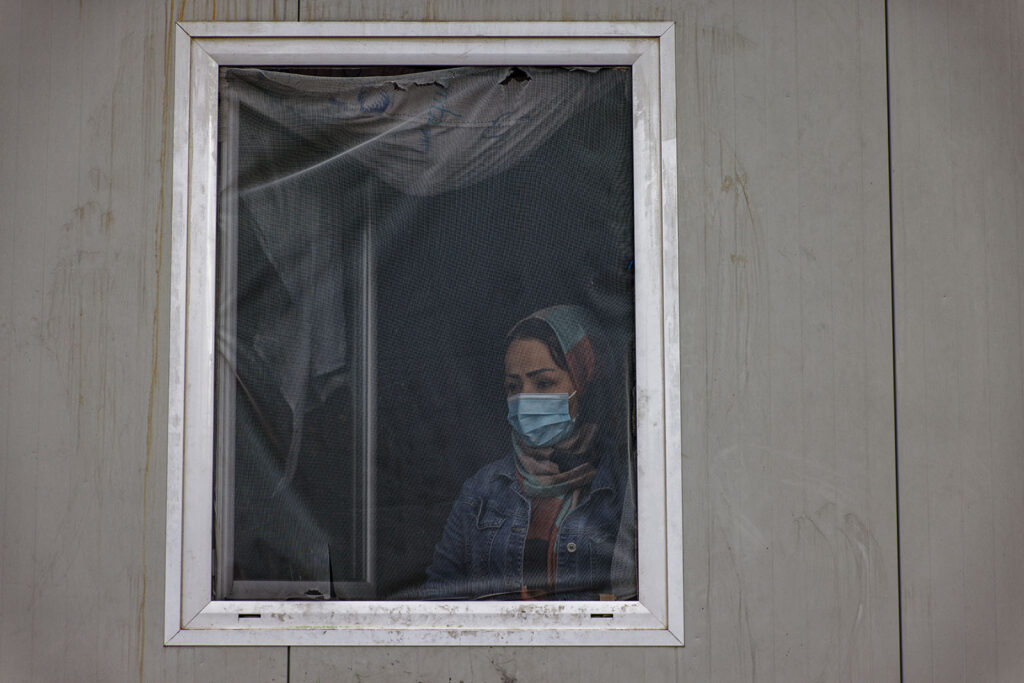
Sima was forced to live for some months in derelict buildings, preyed upon by men offering her protection, until she could sell her bridal gold and get a passport allowing her and her two boys to cross, first into Iran, then Turkey, then across the Aegean Sea till they ended up in Lesbos island’s notorious Mória Camp. They moved to Diavata a month before Moria burned down in September 2020, missing the opportunity to be one of the 1,000 refugees accepted by Germany. Now, they spend endless days between the camp’s playground, its laundry facility and their caravan, waiting for an official resolution to their claim.
Another family I met who fled due to the toxic mix of cultural mores and conflict were the Al-Hassans from Syria’s Deir Ezzor. Khaled Al-Hassan’s family members were forced to leave their town after an Islamic State fighter came knocking for his nine-year-old daughter, in whom he’d discerned bride material. After punching him, Khaled immediately fled with his family across the Euphrates to a succession of troubled towns. For years they lived under the threat of bombardment from the air, and car-bombs at street-level.
The religiously conservative Al-Hassan had been a construction and restaurant entrepreneur in the nether-regions between Syria and Iraq. In Diavata, he carved out a role as an elder for a diminishing Arabic-speaking community by representing its members in disputes with the burgeoning Afghans. He baked and sold Arabic bread to the camp residents, sent his eldest son off to harvest fruit and his daughter to attend a nearby NGO, where volunteers empowered her in a female-only space by coaching her in English. Life moved on, even for those mired in an extended pause.
A glittering dead-end
Back in Thessaloniki, the sea sparkles in the autumnal sunlight but the city has long lost its cosmopolitan glint as the exit point for Balkan trade and one of the Mediterranean’s busiest ports. The wounds of coexistence are either visible in the vandalized Orthodox frescoes inside churches since Ottoman times, and tensions between nationalists and leftists, or remain eloquently out-of-sight in long-since toppled minarets and demolished synagogues, the thousands of architectural artworks replaced by modern apartment blocks, and the Jewish cemetery buried under the Aristotle University campus.
Inside its wood-panelled library is academic Yiorgos Angelopoulos. The former Syriza government official worked hard for years to integrate refugee children into Greek schools, something made harder both by Greece’s exceptionalist creation-myth (which leaves little space for non-Christian Easterners), and the asylum-seekers’ disinterest in staying here (having sized up Greece, they often express their desire to “continue onto Europe”).
“The government is imposing obstacles in these children’s ability to attend schools,” Angelopoulos said. “It’s a lose-lose situation, because both we as a society are losing something and so are these children who won’t be able to acquire the tools for integration.”
The day I left Thessaloniki, thousands of residents were out on the streets cheering a military parade commemorating Greece’s refusal to surrender to the Italians at the start of the Second World War. Proud fathers held up their children as tanks trundled down the coastal road, while sophisticated fighter jets and helicopters performed barrel-rolls and fly-bys. “We must prepare for war in order to continue living in peace,” one young man said. Another nationalist, Dimitris Ziabazis, the founder of a group called United Macedonians and organizer of a controversial 2019 BBQ featuring pork kebabs and beers prepared outside the Diavata camp (he claims it was a publicity stunt intended to focus attention on the regional marginalization that he chooses to blame on asylum-seekers), believed that a country with a militarily-assertive Turkish neighbor needs such parades to keep patriotism acute.
On my return home, taking off from Thessaloniki, the airplane rose above the Gulf of Salonica and I caught a glimpse of Diavata sprawling in the haze. Soaring past Mount Olympus after an intense week of stories and encounters, the height and distance exerted a diminishing effect on the concerns, hopes and fears packed down there. I was back in the accelerated First World Greece which most of the people I had met would only ever encounter if the EU opened its gates to them. It was a reminder that distance can function dehumanizingly, people who don’t suit our narrative can be parked out of sight, and that only interaction, by living alongside each other in cities and the countryside, can achieve integration.



